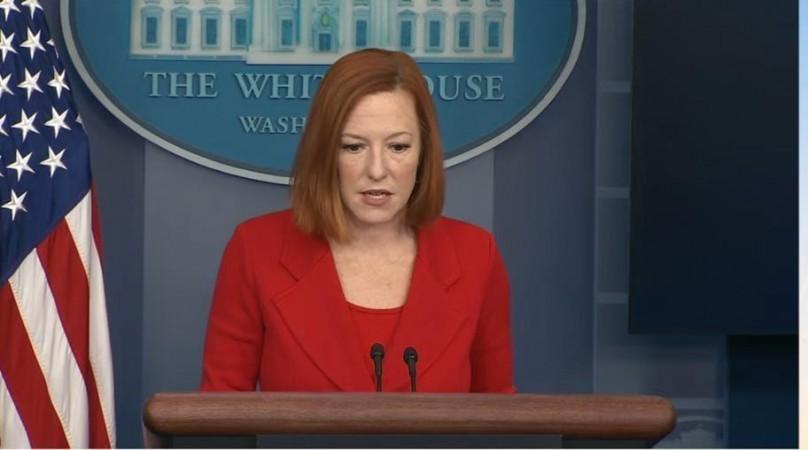The war gets ugly. From a straight up and blatant display of nuclear might, it comes down to backdoor politics, propaganda and conspiracy theories. On Tuesday, Russia's foreign ministry alleged, that it discovered traces of a bioweapons programme, operated by the Ukrainian government and funded by the U.S, in the garb of a civilian scientific research programme.
While the claim was immediately dismissed as misinformation by both Ukraine and the United States, it did throw off balance. Conspiracy theories and speculations took over.
China joins in
![In picture: US Marines in CBRN suits. [Representational image] CBRN suits](https://data1.ibtimes.co.in/en/full/646121/cbrn-suits.jpg?h=450&l=50&t=40)
The claims of U.S biolabs operating in Ukraine were also hypothesised by Chinese Ministry of Foreign Affairs spokesperson Zhao Lijjian. Both state-sponsored media in China and Russia ran the evidence-free allegations quite dutifully on their channels.
White House Press Secretary Jen Psaki, called the allegations "preposterous" in a post that continued, "This is preposterous. It's the kind of disinformation operation we've seen repeatedly from the Russians over years in Ukraine and in other countries, which have been debunked, and an example of the types of false pretexts we have been warning the Russians would invent."
She further continued saying that it was Russia instead that had a long and well documented track record of using chemical weapons, including attempted assassinations and poisoning of Putin's political enemies like Alexei Navalny. Psaki further warned that mere mention of bioweapons theory meant that Russia intended to launch a false flag attack in Ukraine using bioweapons.
The mention of "bioweapons" on social media
Media intelligence service Zignal detected 3568 mentions of U.S bioweapons in Ukraine on online platforms like alternative social networking service Gab, right-wing conspiracy media website Big League Politics and Russian social networking service VK from February 24 to March 2, reported the Forbes.
It must be noted that these 3,658 mentions rose from just one mention from February 17-23. The sudden leap in mentions points out towards the emergence of an agenda backed narrative that Russian invasion of Ukraine is aimed at destroying secret bioweapons labs.

How likely do they exist?
Rather, how likely are the chances of bioweapons being deployed in Ukraine war? Many believe, while not discounting the veracity of reports or allegations, that the chances of being used are a somewhat distant concern than an imminent one. Reportedly, Moscow is pushing for these narratives to come up with a plausible explanation for its own people as to why it invaded Ukraine. Some western government officials claim that similar stories were pushed by Russian media even before they invaded Syria.
It is widely believed, though Putin and his machinery deny all the claims, that Russia uses nerve agents, a type of chemical weapon to obliterate Putin's enemies and opposition. Alexei Navalny was poisoned with Novichok, a Russian nerve agent in 2020 while on a flight to Siberia.
Global watchdog and organisation for the prohibition of chemical weapons the "Chemical Weapons Convention" describes a chemical weapon as, "a chemical used to cause intentional death or harm through its toxic properties." Their use is banned under international humanitarian law regardless of a valid military target because the effects of such weapons are indiscriminate by their very character.








